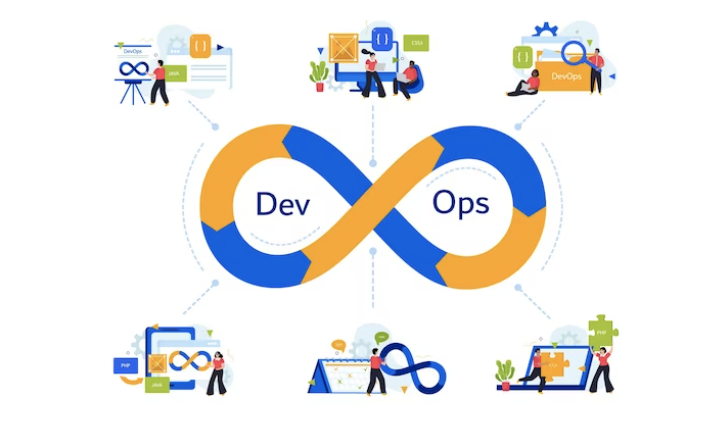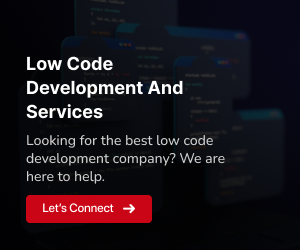Introduction
In the rapidly evolving realm of technology, it’s crucial to stay current with the latest trends, especially in the field of DevOps. This blog post is your ultimate guide to understanding, navigating, and harnessing the power of the latest DevOps trends in the USA. From the foundational concepts to the cutting-edge innovations, we’ll explore how DevOps has transformed over the past decade, the emerging trends in 2023, and how you can craft a strategic DevOps strategy to stay ahead of the curve.
Understanding DevOps Trends:
DevOps, short for Development and Operations, is a collaborative approach that merges software development and IT operations to streamline the software delivery process. Keeping up with the trends in this ever-evolving landscape is vital for both individuals and organizations striving for efficiency and excellence.
The Evolution of DevOps
In order to truly grasp the present state of DevOps, it is essential to comprehend its evolution. Over the years, DevOps has undergone significant changes that have transformed the way software development and operations are intertwined. What initially began as a pragmatic solution to bridge the gap between development and operations teams has now evolved into a cultural movement that drives efficiency, innovation, and seamless collaboration.
The initial objective of DevOps was to break down these barriers by fostering collaboration between development and operations teams. This was achieved by encouraging open communication and shared responsibilities. DevOps aimed to create a smoother and more efficient software delivery pipeline. Automation crucially played a role in achieving this, with the automation of repetitive tasks enabling faster and more reliable releases.
How DevOps Has Transformed in the Past Decade
One of the most significant shifts in DevOps over the past decade has been the rise of automation. Automation has become the cornerstone of modern DevOps practices, with tasks such as testing, deployment, and configuration management being automated to streamline the development pipeline. This shift has not only accelerated the delivery of software but has also led to increased reliability and reduced human errors.
Continuous Integration (CI) and Continuous Delivery (CD) have become fundamental principles in DevOps. CI emphasizes integrating code changes into a shared repository multiple times a day, ensuring the early detection of issues and enabling faster iterations. CD extends this concept by automating the deployment process, enabling frequent and reliable releases. Furthermore, the concept of infrastructure as code (IaC) has revolutionized infrastructure management. Treating infrastructure configurations as code permits version control, reproducibility, and the swift ability to spin up and tear down environments.
Emerging DevOps Trends in 2023

The DevOps landscape of 2023 is ablaze with transformative trends, reshaping the way organizations approach software delivery. As the year unfolds, the following eight trends are poised to redefine DevOps practices:
- AI-Infused DevOps: Artificial Intelligence and Machine Learning take center stage, injecting intelligence into DevOps processes. These technologies also enhance predictive analytics, automate repetitive tasks, and optimize resource allocation, leading to unparalleled efficiency gains.
- Security-First DevOps: With cyber threats on the rise, DevSecOps gains prominence. Security is seamlessly integrated at every stage of development, ensuring robust protection of applications and data. This trend also emphasizes proactive security measures that are essential in today’s digital landscape.
- Serverless Computing Revolution: The serverless architecture is on the rise, freeing development teams from infrastructure management burdens. This empowers them to concentrate solely on code development, resulting in faster iterations and reduced overhead.
- Kubernetes Pervasiveness: Kubernetes continues its dominance as the go-to container orchestration platform. Its widespread adoption furthermore enables organizations to efficiently manage and scale containerized applications, fostering agility and streamlined deployment.
- Multi-Cloud Orchestration: Organizations are embracing multi-cloud strategies, leading to a surge in multi-cloud orchestration tools. DevOps practitioners are now equipped to manage diverse cloud environments seamlessly, optimizing resource utilization and avoiding vendor lock-in.
- Edge DevOps Expansion: Edge computing’s growth spurs the development of Edge DevOps practices. DevOps methodologies are furthermore adapted to cater to the unique challenges of edge environments, facilitating efficient processing of data closer to the source.
- GitOps Adoption: GitOps, a paradigm where Git repositories become the source of truth for infrastructure and application deployment, gains traction. This approach enhances transparency, traceability, and version control in DevOps workflows.
- MLOps Integration: The convergence of DevOps and Machine Learning, known as MLOps, is on the rise. This trend optimizes the deployment and management of machine learning models, ensuring consistent and reliable performance.
The year 2023 holds a plethora of opportunities for DevOps enthusiasts to embrace innovation. By staying attuned to these trends and adapting their practices accordingly, organizations can remain competitive, agile, and primed for success in an ever-evolving tech landscape.
Also read: Top DevOps service companies in San Francisco, USA
Trends That Will Impact the Future of DevOps

The landscape of DevOps is ever-evolving, and staying ahead of the curve is essential for organizations looking to maintain a competitive edge in the USA’s tech-driven markets. Here are some of the key trends that will significantly impact the future of DevOps in the USA:
Shift-Left Security:
With the growing concern over cybersecurity threats, integrating security practices into the DevOps pipeline is becoming paramount. DevSecOps, also known as “shift-left security,” emphasizes building security measures into every stage of the development process. In the USA, where data breaches are a major concern, this trend is expected to gain significant traction.Kubernetes and Containers:
The use of Kubernetes for container orchestration is rapidly increasing. Kubernetes simplifies the deployment and management of containerized applications, allowing for greater scalability and efficiency. In the USA, where cloud-native technologies are booming, Kubernetes is also set to become a cornerstone of DevOps practices.Serverless Computing:
Serverless computing abstracts server management, allowing developers to focus solely on code. As serverless platforms like AWS Lambda and Azure Functions gain popularity, DevOps teams will need to adapt their processes to accommodate these new architectures.AI and Machine Learning in DevOps:
Artificial intelligence and machine learning are being leveraged to optimize various aspects of DevOps, from predictive analytics for identifying issues to automating repetitive tasks. In the USA, where AI and data science are advancing rapidly, integrating these technologies into DevOps workflows is inevitable.Compliance as Code:
Regulatory compliance is a significant concern in industries like healthcare and finance. “Compliance as Code” is an emerging trend that involves codifying compliance requirements into the DevOps pipeline, ensuring that applications meet regulatory standards from the outset.Edge Computing:
The proliferation of IoT devices and edge computing environments necessitates a DevOps approach tailored to edge deployments. DevOps practices will need to adapt to accommodate the unique challenges posed by edge computing in the USA.Remote and Hybrid Workforce:
The COVID-19 pandemic has reshaped work dynamics, with many tech professionals now working remotely or in hybrid setups. DevOps teams must adapt to effectively collaborate and maintain productivity in these new work environments.
As these trends continue to shape the DevOps landscape in the USA, organizations must stay agile and adaptable to remain competitive. The ability to embrace these trends and leverage them effectively will determine their success in the ever-evolving tech industry.
Possibilities and Challenges

The future of DevOps in the USA is brimming with possibilities, but it also presents its fair share of challenges. Let’s take a closer look at what lies ahead:
Possibilities:
Innovation Acceleration:
DevOps practices are a catalyst for innovation. As organizations in the USA increasingly adopt DevOps, we can expect a surge in innovative solutions, applications, and services. This innovation will drive economic growth and enhance competitiveness in the global market.Improved Customer Experience:
DevOps enables rapid development and deployment of features and improvements. This means organizations can respond more swiftly to customer feedback and market changes, ultimately delivering a better experience to their users.Cost Savings:
Automation and efficiency gains in DevOps lead to cost savings. As businesses in the USA continue to focus on cost optimization, DevOps will play a pivotal role in achieving these objectives.Cross-Functional Collaboration:
DevOps breaks down silos between development, operations, and other departments. This fosters a culture of collaboration and knowledge sharing, resulting in higher employee satisfaction and productivity.
Challenges:
Skill Shortage:
While the demand for DevOps professionals is high, there is a shortage of skilled individuals in the USA. Organizations will need to invest in training and upskilling their workforce to meet this demand.Security Concerns:
As DevOps accelerates development and deployment, security can sometimes be overlooked. Cybersecurity threats remain a significant challenge, necessitating a proactive approach to security in DevOps practices.Cultural Resistance:
Shifting to a DevOps culture can be met with resistance within organizations. Change management and fostering a culture of collaboration can be challenging but are essential for DevOps success.Regulatory Compliance:
Ensuring compliance with industry-specific regulations and standards remains a complex challenge, particularly in sectors like healthcare and finance. DevOps teams must navigate these requirements effectively.Scaling Challenges:
As organizations grow, scaling DevOps practices to accommodate increased complexity and larger teams can be challenging. Strategies for effective scaling are a critical consideration.
The future of DevOps in the USA is filled with potential, but it requires a proactive and adaptive approach to overcome the associated challenges. By addressing these challenges head-on and harnessing the possibilities, organizations can thrive in the evolving technology landscape.
Emerging DevOps Trends in 2023

The DevOps landscape of 2023 is ablaze with transformative trends, reshaping the way organizations approach software delivery. As the year unfolds, the following eight trends are poised to redefine DevOps practices:
- AI-Infused DevOps: Artificial Intelligence and Machine Learning take center stage, injecting intelligence into DevOps processes. These technologies enhance predictive analytics, automate repetitive tasks, and optimize resource allocation, also leading to unparalleled efficiency gains.
- Security-First DevOps: With cyber threats on the rise, DevSecOps gains prominence. Security is seamlessly integrated at every stage of development, ensuring robust protection of applications and data. This trend emphasizes proactive security measures that are essential in today’s digital landscape.
- Serverless Computing Revolution: The serverless architecture is on the rise, freeing development teams from infrastructure management burdens. This empowers them to concentrate solely on code development, resulting in faster iterations and reduced overhead.
- Kubernetes Pervasiveness: Kubernetes continues its dominance as the go-to container orchestration platform. Its widespread adoption enables organizations to efficiently manage and scale containerized applications, fostering agility and streamlined deployment.
- Multi-Cloud Orchestration: Organizations are embracing multi-cloud strategies, leading to a surge in multi-cloud orchestration tools. DevOps practitioners are now equipped to manage diverse cloud environments seamlessly, optimizing resource utilization and avoiding vendor lock-in.
- Edge DevOps Expansion: Edge computing’s growth spurs the development of Edge DevOps practices. DevOps methodologies are adapted to cater to the unique challenges of edge environments, facilitating efficient processing of data closer to the source.
- GitOps Adoption: GitOps, a paradigm where Git repositories become the source of truth for infrastructure and application deployment, gains traction. This approach enhances transparency, traceability, and version control in DevOps workflows.
- MLOps Integration: The convergence of DevOps and Machine Learning, known as MLOps, is on the rise. This trend optimizes the deployment and management of machine learning models, ensuring consistent and reliable performance.
The year 2023 holds a plethora of opportunities for DevOps enthusiasts to embrace innovation. By staying attuned to these trends and adapting their practices accordingly, organizations can remain competitive, agile, and primed for success in an ever-evolving tech landscape.
Also read: Top DevOps service companies in San Francisco, USA
The Future of DevOps in 2030

Looking ahead to the year 2030, the DevOps landscape in the USA is poised for significant transformation. Technological advancements, evolving work dynamics, and changing market demands will shape the future of DevOps in profound ways:
Technological Advancements:
AI-Driven DevOps:
Artificial intelligence and machine learning will play a pivotal role in automating routine tasks, predictive analytics for issue resolution, and optimizing resource allocation. DevOps teams will leverage AI to achieve higher levels of efficiency and reliability.Quantum Computing:
As quantum computing evolves, it will introduce new possibilities for optimizing complex DevOps workflows, particularly in areas like simulation, optimization, and cryptography.Edge DevOps:
With the growth of edge computing, DevOps practices will extend to manage distributed edge environments efficiently. DevOps will play a crucial role in ensuring the reliability and performance of edge devices and applications.
Work Dynamics:
Hybrid Workforce:
The trend of remote and hybrid work models will continue, with DevOps teams collaborating seamlessly across geographical boundaries. Tools and processes will adapt to support remote work and distributed teams effectively.Cross-Functional Collaboration:
The culture of cross-functional collaboration instilled by DevOps will extend beyond development and operations teams. DevOps practices will influence collaboration across all business units, further enhancing innovation.
Market Dynamics:
Industry-Specific DevOps:
DevOps practices will become even more specialized to cater to industry-specific needs. Healthcare, finance, manufacturing, and other sectors will adopt tailor-made DevOps approaches to address their unique challenges.Sustainability Focus:
The growing emphasis on sustainability will impact DevOps. Organizations will integrate sustainability metrics into DevOps practices to reduce environmental impact and meet corporate responsibility goals.Regulatory Compliance:
Regulatory requirements will continue to evolve. DevOps will furthermore adapt by providing automated compliance checks and reporting, ensuring that software adheres to the latest standards.
In this rapidly evolving landscape, the role of DevOps professionals will continue to be pivotal. The ability to adapt to emerging technologies, collaborate effectively in remote and cross-functional teams, and navigate evolving regulations will be essential for success.
As we approach 2030, DevOps in the USA will remain a dynamic and influential force in the technology industry. The principles of collaboration, automation, and continuous improvement that underpin DevOps will continue to drive innovation and progress.
Also read: A Beginner’s Guide to DevOps: Understanding, Implementing, and Thriving – US Guide
Benefits of Implementing DevOps for Businesses in 2023

As we step into 2023, DevOps continues to be a game-changer for businesses in the USA and worldwide. Implementing DevOps practices offers a multitude of advantages that can drive success and growth. Here are some key benefits that businesses can expect:
Accelerated Time to Market:
DevOps shortens the software development lifecycle, allowing businesses to release new features, updates, and products faster. This agility is a competitive advantage in rapidly evolving markets.Improved Collaboration:
DevOps promotes collaboration and communication between development, operations, and other teams. Enhanced teamwork leads to smoother workflows and faster issue resolution.Enhanced Quality and Reliability:
Continuous integration and continuous delivery (CI/CD) pipelines ensure that code changes are rigorously tested. This also results in higher-quality software with fewer defects, reducing downtime and customer frustration.Cost Efficiency:
Automation in DevOps reduces manual labor and minimizes errors. This translates into cost savings in both time and resources.Increased Efficiency:
Automation of repetitive tasks, such as testing and deployment, frees up teams to focus on innovation and strategic initiatives.Scalability:
DevOps practices are scalable, making it easier for businesses to grow and adapt to changing demands. Whether it’s handling increased user loads or expanding to new markets, DevOps is designed to accommodate growth.Data-Driven Decisions:
DevOps emphasizes monitoring and feedback. By collecting and analyzing data on application performance and user behavior, businesses can furthermore make informed decisions and prioritize improvements.Competitive Advantage:
Businesses that embrace DevOps gain a competitive edge. They can also respond swiftly to market changes, customer feedback, and emerging trends, staying ahead of competitors.Customer Satisfaction:
Faster releases, fewer disruptions, and improved software quality lead to higher customer satisfaction. Furthermore, happy customers are more likely to remain loyal and recommend products or services.Compliance and Security:
DevOps practices can integrate security measures into the development process, ensuring that applications meet regulatory standards and are resilient against cybersecurity threats.
Also read: Top DevOps service companies in San Francisco, USA
Conclusion
In conclusion, DevOps is not merely a buzzword; it’s a transformative force that will continue to shape the technology landscape in the USA and beyond. As we navigate the evolving terrain of 2023 and look ahead to 2030, DevOps practices will remain at the forefront of innovation, efficiency, and collaboration. DevOps consultants like GeekyAnts in the USA could make this journey a lot more easier. Businesses that embrace DevOps also stand to gain a competitive edge by accelerating their time to market, enhancing software quality, and fostering a culture of continuous improvement. DevOps is more than just a methodology; it’s a strategic imperative for success in the fast-paced, technology-driven world.



















